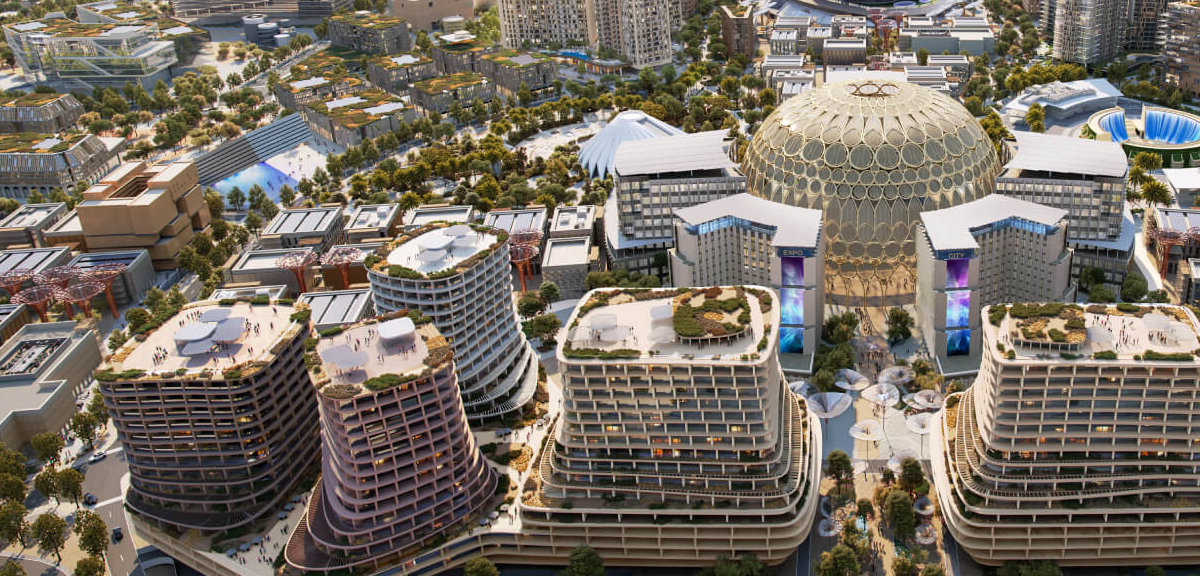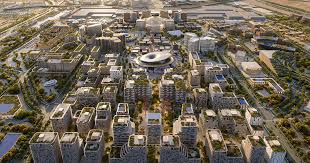
Dubai has always been a city of ambition, innovation, and vision. But the successful hosting of Expo 2020 Dubai, which concluded in March 2022, set a new chapter for the city’s global identity. More than just a six-month event, Expo 2020 was carefully designed with an enduring future in mind. The legacy projects that have emerged are now shaping Dubai’s global competitiveness like never before.
Today, Dubai is no longer just a regional hub; it is fast transforming into a global leader across technology, sustainability, education, and tourism—all thanks to the visionary projects born out of the Expo 2020 legacy.

At the heart of the Expo legacy is Expo City Dubai, built on the original Expo 2020 site. Instead of dismantling the infrastructure after the event, Dubai turned the space into a futuristic smart city, which is already attracting global attention.
Expo City Dubai is designed to be an innovation hub for businesses, startups, and tech giants. It offers high-tech office spaces, residential areas, schools, and cultural centers. Major companies and global organizations, such as Siemens and DP World, have already set up operations in this district.
This initiative has positioned Dubai as a world-class destination for international business and innovation. Startups and tech companies looking for a base in the Middle East are now eyeing Expo City as their next headquarters.

One of the key themes of Expo 2020 was sustainability. The legacy projects have stayed true to this commitment. Buildings at Expo City are designed to the highest environmental standards, including LEED-certified structures and solar-powered grids.
This focus on sustainability is helping Dubai appeal to global green investors and climate-conscious companies. The city’s efforts are aligned with the UAE’s Net Zero 2050 strategy, making it a preferred location for businesses focused on renewable energy, clean tech, and sustainable solutions.
As the world increasingly shifts towards green practices, Dubai’s Expo legacy gives it a competitive edge over other global cities still catching up on climate initiatives.
The Expo site also featured breakthrough developments in smart transportation. The futuristic Dubai Metro Route 2020, developed especially for Expo 2020, connects key parts of the city with Expo City Dubai. This has significantly boosted Dubai’s public transport infrastructure.
Additionally, trials for autonomous vehicles, drones, and smart mobility services are continuing in the Expo district. These initiatives are likely to attract future tech companies in automotive and AI industries, positioning Dubai as a testbed for next-generation transport solutions.
The legacy of Expo 2020 is not limited to technology and business. Many of the Expo pavilions, including the UAE, Alif (Mobility), and Terra (Sustainability) pavilions, remain open as cultural attractions. These sites have become must-visit destinations for tourists and residents alike.
Dubai plans to use these world-class attractions to boost its tourism industry even further. With the goal of attracting 25 million tourists annually by 2025, the Expo legacy sites are expected to play a vital role in achieving this target.
Hotels, restaurants, and entertainment centers are rapidly developing around the Expo district, creating new jobs and adding billions to Dubai’s economy.
Another pillar of the Expo legacy is education. The Dubai Future Academy and other training institutes are setting up branches in Expo City. These centers will focus on AI, robotics, cybersecurity, and space technology.
With the world’s focus shifting towards the knowledge economy, Dubai’s investment in education will prepare a new generation of tech-savvy professionals. This will make the city even more attractive to global companies looking for a skilled, future-ready workforce.
Expo 2020 welcomed 192 countries, making it one of the most globally diverse events ever held. The relationships and partnerships built during this period have already led to new trade deals, foreign investments, and international collaborations.
Many countries have maintained their pavilions at Expo City as permanent diplomatic or trade centers. This global connectivity ensures Dubai remains an international gateway, linking the East and West for commerce, culture, and innovation.
Dubai’s leadership wisely used Expo 2020 not as an end point, but as a launchpad for its long-term goals. As a result, the city is now:
In the coming years, these projects are expected to contribute billions of dollars to Dubai’s GDP, create thousands of jobs, and secure the city’s reputation as a world leader in competitiveness.
Dubai’s Expo 2020 legacy projects are more than buildings or attractions; they represent a future-focused vision that ensures Dubai’s position on the world stage for decades to come. As global cities compete for attention, investment, and talent, Dubai’s foresight and planning give it a clear competitive edge.
With smart cities, green innovations, education hubs, and international partnerships, Dubai is not just preparing for the future—it is shaping it.
Read More:- Shobha Realty Launches Its Most Luxurious Project Yet—Full Details Inside 2025
